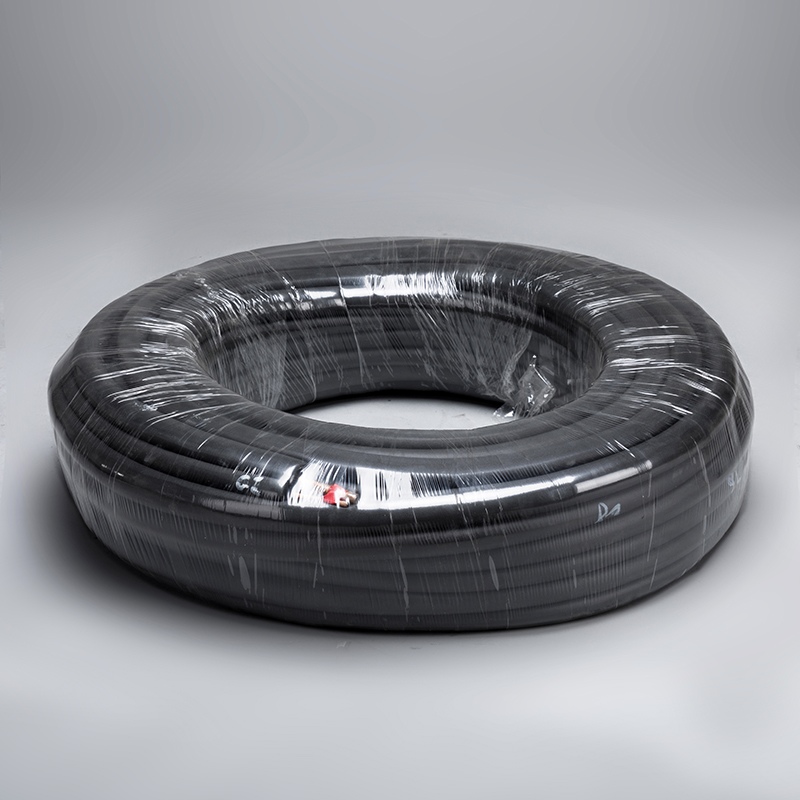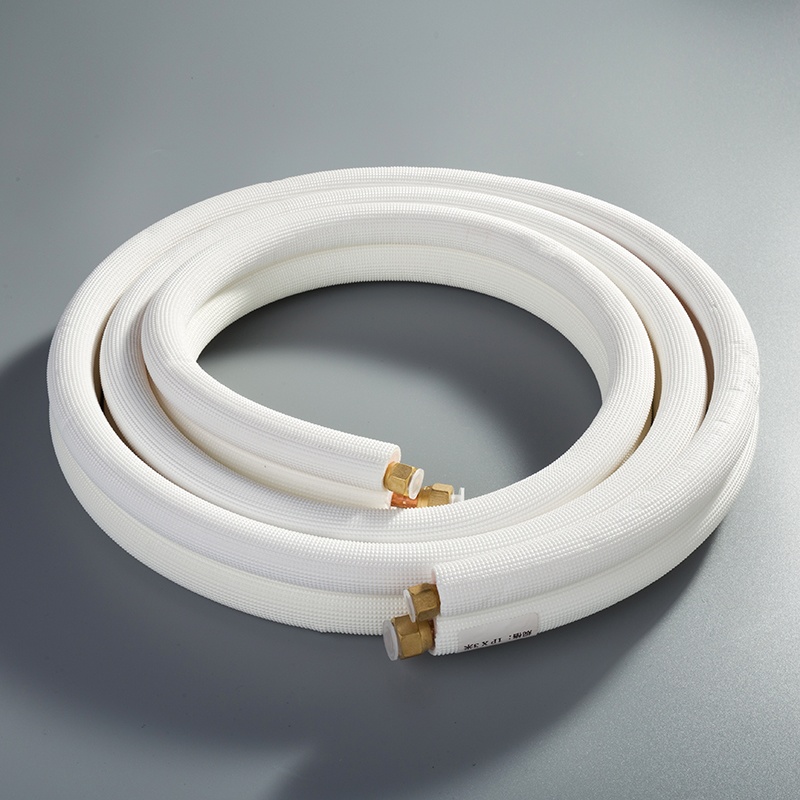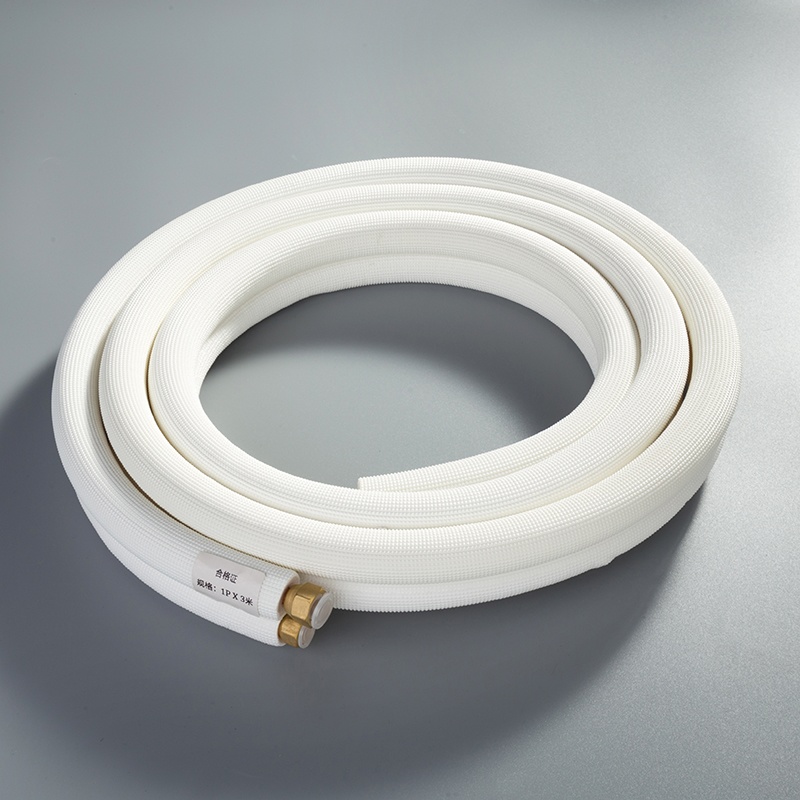Step-by-Step Guide to Fixing Hot Copper Pipes in 2025

Have you noticed your air conditioner not cooling your home effectively? If the air conditioner copper pipe feels hot to the touch, it’s a clear indication of a problem. This can result in warm air circulating indoors instead of the cool, refreshing air you rely on. Potential causes include refrigerant imbalances, compressor issues, or blockages within the system. Ignoring a hot air conditioner copper pipe can lead to inefficient cooling, increased energy costs, and even long-term damage to your unit. Addressing this issue promptly will help keep your home comfortable and ensure your system operates efficiently, even during the hottest days.
Key Takeaways
Hot copper pipes in your AC mean something is wrong. This can happen due to leaks, bad airflow, or broken parts. Finding the problem early stops more damage.
Taking care of your AC is very important. Change air filters every month, remove dirt near the outdoor unit, and get it checked once a year to keep it working well.
If pipes feel hot, turn off the AC. Look for damage or clogs. Always unplug the AC before fixing anything to stay safe.
Use a smart thermostat to control your AC better. It keeps the temperature steady and saves energy by not overworking the system.
Look out for low refrigerant signs like warm air or icy pipes. If you think there’s a refrigerant problem, call an expert to fix it safely.
Common Causes of Hot Copper Pipes

Understanding why your AC's copper pipes are hot is the first step to solving the problem. Let’s explore some common causes and how they might affect your system.
Refrigerant Issues
Low Refrigerant Levels
You might think low refrigerant levels would cause hot pipes, but that’s not the case. Instead, low refrigerant usually leads to freezing pipes. If your pipes are hot, the issue could be something else, like a blockage or improper refrigerant flow.
Refrigerant Leaks
Leaks in the refrigerant line can disrupt the cooling process. When refrigerant escapes, it can’t circulate properly, leading to uneven cooling and warm copper pipes. Overcharging the system with too much refrigerant can also increase pressure, causing the pipes to heat up.
Poor Airflow
Dirty or Clogged Air Filters
Dirty air filters block airflow, which can make your AC work harder than it should. This strain can cause the compressor to overheat, leading to hot copper pipes. Cleaning or replacing your filters regularly ensures proper airflow and prevents this problem.
Blocked Vents or Ducts
Blocked vents or ducts can also restrict airflow. When air can’t move freely, the system struggles to cool your home, and the copper pipes may become hot. Check your vents and ducts for obstructions to keep your AC running smoothly.
System Overloading
Oversized or Undersized Air Conditioning Unit
An improperly sized AC unit can lead to inefficiency. If your unit is too small, it may overwork itself trying to cool your home, causing the pipes to heat up. On the other hand, an oversized unit may short-cycle, leading to uneven cooling and potential problems with the copper pipes.
Prolonged Operation in Extreme Heat
Running your AC for long periods during extreme heat can overwork the system. When outdoor temperatures soar above 90°F, your unit’s cooling capacity drops. This can cause the compressor to overheat, leading to hot pipes and higher energy bills.
Tip: Regular maintenance and monitoring can help you avoid these air conditioning problems. Keep your filters clean, check for blockages, and ensure your system is the right size for your home.
Mechanical Problems
When your air conditioner's copper pipes feel hot, mechanical problems could be the culprit. Let’s dive into two common issues: a faulty compressor and a malfunctioning expansion valve.
Faulty Compressor
The compressor plays a crucial role in your AC system. It circulates the refrigerant, ensuring it flows properly between the indoor and outdoor units. When the compressor malfunctions, the refrigerant flow gets disrupted, which can cause the copper pipes to heat up.
You might notice some warning signs if the compressor is failing:
A chattering or ticking noise when the AC starts. This could mean the electrical relay switch isn’t working.
Clicking, rumbling, or rattling sounds. These noises often indicate that the compressor motor mounts have failed.
Moisture leaks around the HVAC system. This might suggest refrigerant leaks, which can also pose health risks.
Warm air blowing from the vents. This happens when the compressor struggles to maintain proper refrigerant levels.
Reduced airflow from the vents. This could mean the compressor isn’t generating enough air.
If you spot any of these signs, it’s time to call a professional. Ignoring a faulty compressor can lead to more significant damage and higher repair costs.
Malfunctioning Expansion Valve
The expansion valve regulates the flow of refrigerant into the evaporator coil. If this valve malfunctions, it can either restrict or flood the system with refrigerant. Both scenarios can cause the copper pipes to overheat.
A blocked valve might create a refrigerant backup, leading to increased pressure and hot pipes. On the other hand, an overactive valve could allow too much refrigerant to pass through, disrupting the cooling process.
To fix this, you’ll need an HVAC technician to inspect and replace the valve if necessary. Regular maintenance can help catch these issues early and keep your system running smoothly.
Tip: Pay attention to unusual noises or changes in airflow. These small signs can help you identify mechanical problems before they escalate.
How to Fix Hot Copper Pipes

Turn Off the Air Conditioner
Before you start any air conditioner repair, safety should be your top priority. Turn off the power completely to avoid electrical shocks. You can do this by flipping the circuit breaker and unplugging the unit. If you’re working outdoors, cover sensitive components like the compressor and evaporator coils to protect them from dust or debris. Always handle refrigerant carefully and wear protective gear if necessary. If you’re unsure about any step, it’s better to call a professional.
Safety Tip: Never attempt to lift heavy components without proper techniques. Protect yourself from injuries by asking for help when needed.
Inspect the Copper Pipes
Once the AC is off, take a close look at the copper pipes. Check for visible damage, such as cracks, dents, or leaks. A simple way to detect leaks is by spraying soapy water on the pipes. If you see bubbles forming, it’s a sign of a leak. You’ll need to replace the damaged section to restore proper function. Also, feel along the pipe for cool spots, which might indicate a blockage. If you find one, disconnect the pipe at the clog location and clean it out before reconnecting.
Pro Tip: Clean the compressor and surrounding area to remove debris that could obstruct airflow. This can prevent future issues with your AC system.
Check Refrigerant Levels
Refrigerant plays a crucial role in your AC’s cooling process. To check its levels, you’ll need a pressure gauge. Connect the high-pressure gauge (red) to the high-pressure service valve and the low-pressure gauge (blue) to the low-pressure valve. Compare the readings to the recommended range for your system. High-pressure readings above the range may mean the system is overcharged, while low-pressure readings suggest insufficient refrigerant. If the levels are off, contact a professional to refill or repair the system. Attempting to handle refrigerant yourself can be dangerous and may damage the compressor.
Warning: Exposure to refrigerant can cause serious health risks, including breathing problems and frostbite. Always leave refrigerant handling to trained technicians.
Clean or Replace Air Filters
Remove and inspect filters for dirt or debris.
Your air filters play a vital role in maintaining proper airflow in your AC system. Over time, they can collect dirt, dust, and debris, which restricts airflow and puts extra strain on your unit. This can lead to issues like a clogged ac drain line or even iced-over evaporator coils. To inspect your filters, remove them from the unit and hold them up to the light. If you can’t see through them, it’s time for a cleaning or replacement.
Tip: Cleaning reusable filters with water and mild soap can save you money. Let them dry completely before reinstalling to avoid excess moisture buildup in the system.
Replace filters if necessary.
If your filters are disposable or too dirty to clean, replace them with new ones. Using clean filters improves airflow, prevents clogged condensation drain issues, and helps your AC run more efficiently. Regularly replacing filters also reduces the risk of moisture-related problems, like a clogged condensate drain line or clogged ac drain pipe. Aim to check your filters every 30 days during peak usage seasons.
Inspect the Outdoor Unit
Clear debris around the unit.
The outdoor unit is essential for releasing heat from your home. When debris like leaves, dirt, or spider webs accumulates around it, airflow gets blocked, and the system struggles to cool effectively. This can even lead to the outdoor unit blowing hot air. Clear at least one foot of space around the unit and trim back any nearby foliage.
Turn off the power to the unit for safety.
Remove leaves, twigs, and other debris from the area.
Check the condensate drains for clogs to prevent water damage.
Experts recommend keeping at least 60 inches of clearance above the compressor and ensuring walls or fences are at least two feet away from the unit.
Check for obstructions in the condenser coils.
Dirty or bent condenser coils can reduce your AC’s efficiency. Clean the exterior coils by gently brushing off dirt and debris. For deeper cleaning, remove the cover grille and clean the interior components. Straighten any bent fins with a fin comb to restore proper airflow. Regular maintenance of the coils can prevent issues like clogged ac drain line problems or excess moisture buildup.
Seek Professional Help
When to call an HVAC technician.
Sometimes, DIY fixes aren’t enough. If your AC is blowing warm air, has hot copper pipes, or shows signs of a clogged ac drain pipe, it’s time to call a professional. These issues often indicate deeper problems, like low refrigerant levels, overcharging, or blockages in the pipes. A technician can diagnose and repair these problems safely and effectively.
Importance of professional diagnostics and repairs.
Professional HVAC technicians have the tools and expertise to handle complex issues. They can identify why your AC isn’t cooling properly, whether it’s due to a faulty compressor, clogged condensate drain line, or iced-over evaporator coils. Regular professional maintenance also helps prevent future problems, saving you time and money in the long run.
Note: Don’t wait until your system fails completely. Addressing small issues early can prevent costly repairs and keep your home comfortable.
Preventing Air Conditioning Problems
Schedule Regular Maintenance
Regular maintenance is the best way to keep your AC running smoothly and avoid unexpected problems. Scheduling annual HVAC check-ups ensures your system stays in top shape. During these check-ups, a technician can catch small issues before they turn into costly repairs.
Here’s why regular maintenance is essential:
Prevents unexpected breakdowns by addressing minor problems early.
Improves energy efficiency, which lowers your energy bills.
Extends the lifespan of your AC, saving you money on replacements.
Enhances indoor air quality by reducing allergens and pollutants.
Builds trust with your HVAC contractor for reliable service.
A well-maintained AC also reduces the risk of moisture-related issues, like a clogged ac drain line or excess moisture buildup. Plus, it gives you peace of mind knowing your system is reliable when you need it most.
Tip: Schedule your maintenance before the summer heat kicks in to ensure your AC is ready for peak usage.
Monitor Airflow
Proper airflow is critical for preventing air conditioning problems. When airflow is restricted, your system struggles to cool your home, which can lead to hot copper pipes and other issues.
Here’s how monitoring airflow helps:
Identifies blockages or malfunctions that can cause hot copper pipes.
Ensures the refrigerant circulates properly, preventing warm air from blowing through your vents.
Avoids overheating caused by a clogged compressor or malfunctioning fan.
Keep your filters clean and check your vents regularly for obstructions. This simple step can prevent problems like a clogged ac drain line or clogged condensate drain line. It also helps maintain proper airflow, ensuring your AC operates efficiently.
Pro Tip: Replace your filters every 30 days during heavy usage to keep your system running smoothly.
Check Refrigerant Levels Periodically
Low refrigerant levels can cause your AC to lose its cooling power. While you can’t check refrigerant levels yourself, you can watch for signs of a problem.
Here are some signs of low refrigerant:
Warm air blowing from your vents instead of cool air.
Ice forming on the evaporator coils or copper pipes.
A hissing or bubbling sound near the refrigerant lines.
Higher energy bills due to your AC working harder to cool your home.
If you notice any of these signs, call a professional for a repair. Handling refrigerant requires special tools and training, so it’s not a DIY job. Regular maintenance can help catch refrigerant issues early, preventing problems like a clogged ac drain pipe or excess moisture buildup in your system.
Avoid Overworking the System
Use a programmable thermostat to manage usage.
Have you ever thought about how much your AC works when you’re not home? A programmable thermostat can make a big difference. It lets you set specific temperatures for different times of the day. For example, you can program it to increase the temperature slightly when you’re out and cool things down before you return. This keeps your home comfortable without overworking your AC.
Here’s why a programmable thermostat is a game-changer:
It helps maintain a consistent temperature range.
It reduces the workload on your AC system.
It prevents your AC from running unnecessarily, saving energy and money.
By using this simple tool, you can avoid common issues like an overworked compressor or even a clogged condensate drain line. Plus, it’s an easy way to extend the life of your air conditioning system.
Ensure proper insulation in your home.
Did you know that good insulation can make your AC work smarter, not harder? Insulation acts like a shield, keeping the cool air inside and the hot air out. Without it, your AC has to work overtime to maintain the desired temperature, which can lead to problems like a clogged ac drain line or higher energy bills.
Here’s how proper insulation helps:
It reduces heat transfer, optimizing your AC’s efficiency.
It prevents air leaks and drafts, so conditioned air stays inside.
It maintains consistent indoor temperatures, lowering the workload on your AC.
Check your attic, walls, and windows for proper insulation. If you notice drafts or uneven cooling, it might be time to upgrade. This small investment can save you a lot in the long run by reducing energy waste and keeping your AC in top shape.
Tip: Combine proper insulation with a programmable thermostat for maximum efficiency. Together, they can help you avoid overworking your AC and keep your home comfortable year-round.
Hot copper pipes in your air conditioner can disrupt your cooling system and lead to higher energy bills. Common causes include refrigerant leaks, poor airflow, or mechanical issues like a faulty compressor. Fixing these problems involves steps like cleaning the compressor, inspecting for leaks, and replacing dirty filters. Always turn off the power before starting any repairs. If your air conditioner doesn’t make air cold enough after these fixes, it’s time to call a professional.
Regular maintenance is key to preventing these issues. Clean your air filter each season, clear vegetation around the outdoor unit, and schedule annual check-ups. These simple steps keep your AC efficient and ensure your system is not cooling ineffectively. Don’t wait—act now to keep your home comfortable year-round!
FAQ
What causes my air conditioner’s copper pipes to get hot?
Hot copper pipes usually mean something’s wrong with your AC. Common causes include refrigerant leaks, poor airflow from dirty filters, or mechanical issues like a faulty compressor. Identifying the root cause quickly can prevent further damage to your system.
Can I fix hot copper pipes myself?
You can handle simple fixes like cleaning filters or clearing debris around the outdoor unit. For refrigerant issues or mechanical problems, it’s best to call a professional. Attempting complex repairs without proper tools or knowledge can damage your AC or pose safety risks.
How often should I replace my air filters?
Replace your air filters every 30 days during heavy usage seasons, like summer. If you have reusable filters, clean them monthly. Clean filters improve airflow, prevent strain on your AC, and keep your home’s air quality fresh.
Is it safe to run my AC if the copper pipes are hot?
No, running your AC with hot copper pipes can overwork the system and cause further damage. Turn off the unit and inspect for visible issues. If you’re unsure about the problem, contact an HVAC technician to avoid costly repairs.
How can I prevent my AC pipes from overheating?
Regular maintenance is key. Clean or replace filters, clear debris around the outdoor unit, and schedule annual check-ups. Use a programmable thermostat to avoid overworking your system. These steps keep your AC efficient and prevent overheating issues.
Tip: Keep an eye on your AC’s performance. Small issues, like reduced airflow, can signal bigger problems ahead.
See Also
Quick DIY Tips for Repairing Your Copper Pipe
Beginner's Guide to Soldering Copper Pipes Effectively
Essential Tips for Keeping Copper Pipes Running Smoothly


